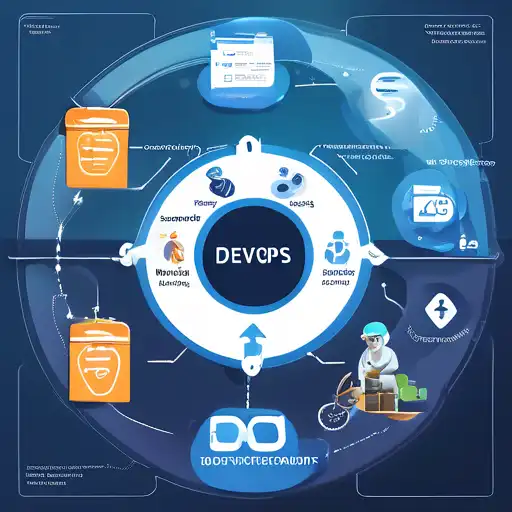Introduction to DevOps in Software Development
DevOps has revolutionized the way software is developed, deployed, and maintained. By integrating development (Dev) and operations (Ops), DevOps practices aim to shorten the development lifecycle while delivering high-quality software continuously. This article explores how DevOps improves the software development lifecycle (SDLC) through automation, collaboration, and continuous feedback.
The Role of DevOps in Modern Software Development
DevOps is not just a set of tools; it's a culture that promotes collaboration between developers and operations teams. This collaboration ensures that software is built, tested, and released more rapidly and reliably. Key practices include continuous integration and continuous delivery (CI/CD), infrastructure as code, and automated testing.
Key Benefits of DevOps in the SDLC
DevOps offers numerous benefits that enhance the SDLC, including:
- Faster Time to Market: Automation and CI/CD pipelines enable quicker releases.
- Improved Collaboration: Breaks down silos between teams, fostering a culture of shared responsibility.
- Higher Quality Products: Automated testing and continuous feedback loops ensure defects are caught and fixed early.
- Increased Efficiency: Automating repetitive tasks frees up teams to focus on innovation.
Implementing DevOps Practices
Adopting DevOps requires a shift in culture and processes. Organizations should start by:
- Assessing their current development and operations workflows.
- Identifying bottlenecks and areas for automation.
- Implementing tools that support CI/CD, such as Jenkins, Docker, and Kubernetes.
- Training teams on DevOps principles and practices.
Challenges and Solutions in DevOps Adoption
While DevOps offers significant advantages, organizations may face challenges such as resistance to change, toolchain complexity, and security concerns. Overcoming these requires:
- Leadership Support: Ensuring buy-in from all levels of the organization.
- Gradual Implementation: Starting small and scaling DevOps practices over time.
- Security Integration: Incorporating security into the DevOps pipeline (DevSecOps) to address vulnerabilities early.
Conclusion
DevOps transforms the software development lifecycle by fostering collaboration, automating processes, and enabling continuous delivery. By adopting DevOps practices, organizations can achieve faster releases, higher quality products, and greater operational efficiency. As the software industry evolves, DevOps will continue to play a pivotal role in shaping the future of software development.
For more insights into optimizing your development processes, explore our articles on CI/CD pipelines and automated testing.
